Best Wishes for all those taking the CRE Exam Oct 4th.
Articles
Find all articles across all article series listed in reverse chronological order.
Learning Reliability
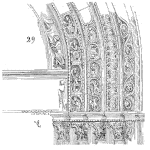
… Or, reliable learning. One of the best things about reliability engineering is the never ending opportunity to learn. We work with materials, assembly processes, and people creating and maintaining products, machines, and systems. Other engineering disciplines tend to focus on one aspect of a design or process – mechanical engineers make allowances for the circuit board location and heat transfer requirements, yet do not word on the circuits themselves. Electrical engineers just the opposite, they focus on electronics and power and attempt to fit within the constants imposed by industrial designers. Maybe architects are close to the breadth of reliability engineering as they contribute the aesthetic and functional elements of a design, and consider the maintenance and longevity of the building. Yet, they are not involved with the actual aging and maintenance. [Read more…]
Reliability Math

Recently a question came to me about the difference between hazard rate and failure rate. A lot of literature and reference use these two terms interchangeably. I have long thought there is a difference, and to check my understanding I asked a good friend and reliability engineering consultant Chet Haibel. He provides a slide set (below) that described the various functions we use working reliability statistics and he details out the functions when using the exponential distribution.
Signed up, Now What?

I received a note today from someone that has signed up for the Oct 5th CRE exam (about two weeks from today) and has not spent any time preparing. The request:
How should I prepare for the exam?
Reminds me of a quote about tree planting. The best time to plant a tree is 20 years ago, the second best time is now. [Read more…]
Third Five Questions
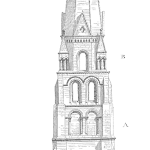
Third in a series exploring sample exam questions.
Test yourself with the third five questions from an ASQ sample exam. If you have other ways to sort out these questions, please comment and let us learn and compare approaches. [Read more…]
Reliability Program of One

All Reliability Tasks
Having been invited to evaluate reliability practices within a company, I conducted a series of interviews with various staff members. When asked any question on the reliability techniques used, members of the engineering, procurement, operations, and quality departments all responded with nearly the same comment: “Oh, the reliability guy does that.” It appeared that the organization had one reliability engineer who did everything related to reliability. His interview was scheduled last that day. I was looking forward to meeting him. [Read more…]
Second Five Questions

Second in a series exploring sample exam questions.
If you have other ways to sort out these questions, please comment and let us learn and compare approaches. [Read more…]
No Feedback

Imagine you are requested to assist a design team in determining how to best improve the reliability of a product. You learn that the organization produces a range of point of sale (POS) devices and they have invited you to a meeting with their staff to discuss the product and ways to improve the field reliability.
To help understand the situation, you may have already started to think of a set of questions whose answers would lead to suitable recommendations: [Read more…]
First Five Questions
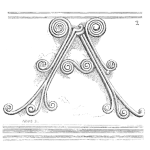
ASQ has posted sample exams for the past 10 or so years for the certifications. The CRE one is from 2009 and has questions used on previous exams. You can find a copy here or here.
This post has the first 5 questions with the answers explained. This is how I think or work through the problem to select an answer. Please comment if you have a different approach, especially if it would save time. [Read more…]
Reliability Goal Story
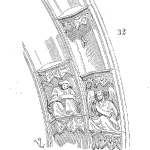
A life-support-equipment company manager desires to conduct a reliability program assessment. The company is experiencing about a 50% per year failure rate and at least the Director of Quality thought it should do better. One of the findings was related to reliability goal setting and how it was used within the organization.
Nearly everyone knew that the product had a 5,000-h Mean Time Before Failure (MTBF) reliability goal, but [Read more…]
Reliability Maturity Matrix

The concept of a maturity model is not new. It provides a means to identify the current state and illuminate the possible improvements to a reliability program. The matrix serves a guide to assist an organization in improving its program.
The matrix has five stages. In general, the higher stages are most cost effective and efficient at achieving higher rates of product reliability performance. These stages—uncertainty, awaking, enlightenment, wisdom, and certainty—are described in today’s post. [Read more…]
Hypothesis Test Selection

Over the past few weeks, we have explored about 8 different hypothesis test formulas. There are more. So, how do you determine which test to perform? Well, that depends on the question you are trying to answer and the type of data you’re dealing with. [Read more…]
Decision Focus

An essential element of a successful reliability program is the notion that all reliability activity relates to decisions. If you are performing a HALT because it is listed in the product development guidelines, or because it was carried over from the last program’s plan, and the HALT results are not part of the design improvement decision-making process, then you probably should not be doing so. If the HALT results yield little or no information (e.g., it is just being checked off the list as accomplished) then the HALT itself provides little or no value. [Read more…]
The Paired-Comparison Hypotheses Test for Variances

The F-test provides a means to compare paired data variances. It is a variance hypothesis test.
If we are exploring the precision of one measuring device or another, or we are comparing assembly processes, we often want to know if the variance is different or not.
Working with data from normal distributions from two different processes or devices, we know from statistical theory that the ratio (s1)2 / (s2)2 is described by the F distribution.
There are three hypothesis test possible, basically to test if the population variances are different, or one is less than or greater than the other. The following details the three test’s null and alternative hypotheses. [Read more…]
Product Reliability Participants part 7
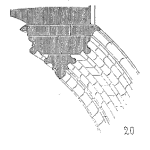
This will be the last of the series, considering the different positions in an organization that deals with product reliability. We’ve moved away from the positions where the focus on reliability is central, but there are important considerations in relation to product reliability for each of these roles still. In this concluding post the subjects are the manufacturing team, and field service and call center staffs. [Read more…]